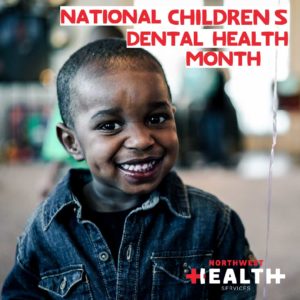 Why is Children’s Dental Health Important?
Why is Children’s Dental Health Important?
Dental decay in children is the single most common chronic childhood disease according to a U.S. Department of Health and Human Services report on oral health in America. When left untreated, tooth decay can be associated with eating, speaking and learning problems.
Parents top health concerns for their children almost mirror the results associated with poor oral health in children, such as:
- Inadequate nutrition
- Missed school
- Depression
- Impact on ability to learn
It’s important to remember the end results are preventable. More so our need to spread the word is critical. Children from low-income families are at greater risk for poor oral health and its ramifications.
Here are three great tips to prevent tooth decay in kids:
- Create a tooth brushing routine.
Some families struggle to pay for diapers let alone afford toothpaste and toothbrushes to create a routine. There are other means for creating a routine like rinsing your mouth with water, ‘brushing’ with a clean paper towel or cloth, and doing your best to avoid sugar.
- Visit the dentist regularly.
The American Academy of Pediatric Dentistry (AAPD) recommends that parents take their children to the dentist as soon as their first tooth erupts or by their first birthday. Northwest Health accepts Medicaid, Medicare, most private insurances and offers a Discount Program (Sliding Fee) for dental services.
- Increase healthy foods and limit unhealthy foods in your child’s diet.
Healthy foods like carrots, broccoli and whole green beans make it easier to maintain healthy teeth. Foods like juice, candy (especially gummy candy) can hurt your child’s teeth and cause cavities. Unfortunately the less you make the more your family budget decreases. Food choices tend to shift toward cheaper and more energy-dense foods. The first foods to go are usually healthier foods like your high-quality proteins, vegetables and fruit.
What families can do when on a budget is find nutrient rich foods at a low cost. Nutrient dense but affordable foods like milk, yogurt, eggs, beans, potatoes, carrots, cabbage and certain cereals offer high nutrient density at a low cost.
These tips can help to decrease the likelihood that your child will develop some side of dental disease. Our goal is to continue our progress in reducing health disparities for anyone in our community regardless of your background. Practicing prevention is a big first step.



Cameron Corbet, Marketing & Communications Manager
